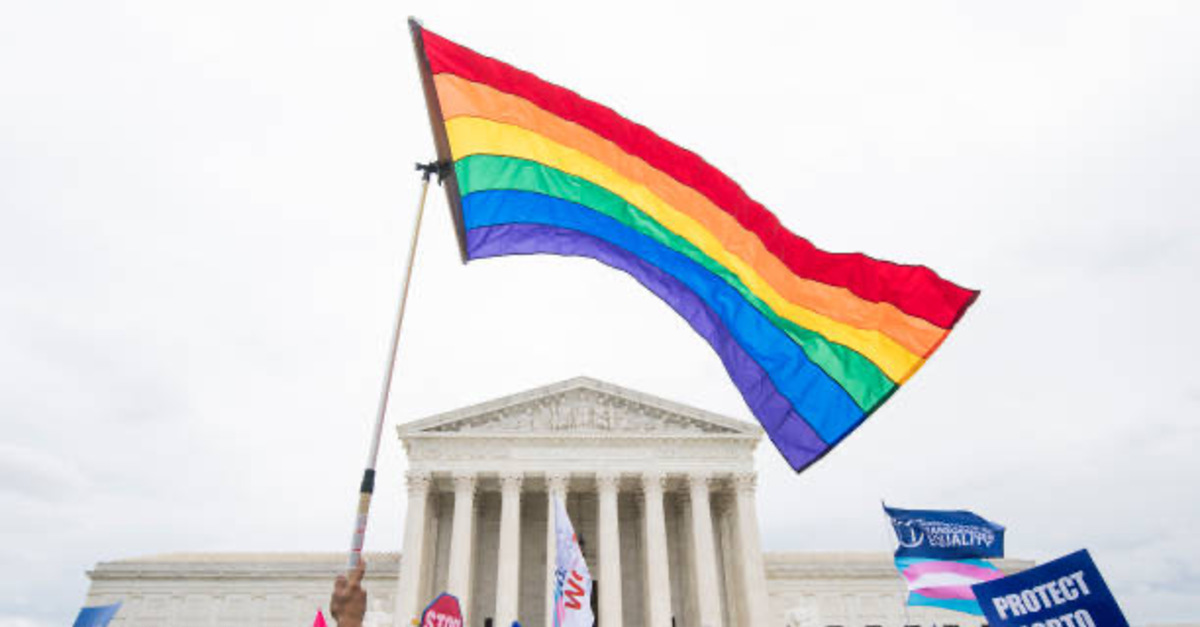
A three-judge panel on the U.S. Court of Appeals for the Eleventh Circuit on Thursday ruled 2-1 that laws prohibiting gay conversion therapy for minors were unconstitutional, striking down the bans as violations of the First Amendment. The divided court reasoned that the ordinances were content-based regulations of speech that could not survive strict scrutiny review, which requires them to be “narrowly tailored” to serve a “compelling state interest.”
The majority opinion, penned by U.S. Circuit Judge Britt Grant and joined by Circuit Judge Barbara Lagoa, both of whom were appointed by President Donald Trump, rejected the position of medical and public health organizations which collectively said that sexual orientation change efforts (SOCE) posed a serious risk to minors.
“It is not uncommon for professional organizations to do an about-face in response to new evidence or new attitudes, but one example stands out as we consider this case. In the first three printings of the Diagnostic and Statistical Manual of Mental Disorders, the American Psychiatric Association considered homosexuality a paraphilia, disorder, or disturbance. Only in 1987 was homosexuality completely delisted from the Manual,” Grant wrote. “The Association’s abandoned position is, to put it mildly, broadly disfavored today. But the change itself shows why we cannot rely on professional organizations’ judgments—it would have been horribly wrong to allow the old professional consensus against homosexuality to justify a ban on counseling that affirmed it. Neutral principles work both ways, so we cannot allow a new consensus to justify restrictions on speech. Professional opinions and cultural attitudes may have changed, but the First Amendment has not.”
The initial complaint was filed by Drs. Robert Otto and Julie Hamilton, who claimed their clients held “sincerely held religious beliefs” that conflicted with homosexuality and sought counselors’ help to address “unwanted same-sex sexual attractions, behaviors, or identities […].”
Thursday’s decision overturned a district court ruling that denied their initial motion to prevent the laws from taking effect.
The majority also rejected arguments that restrictions on what licensed therapists can say to their patients falls into the category of “professional conduct,” akin to a medical procedure because the prohibited conduct consists entirely of spoken words.
“It comes down to this: if the plaintiffs’ perspective is not allowed here, then the defendants’ perspective can be banned elsewhere. People have intense moral, religious, and spiritual views about these matters—on all sides,” the order stated. “And that is exactly why the First Amendment does not allow communities to determine how their neighbors may be counseled about matters of sexual orientation or gender.”
Judge Beverly B. Martin, an appointee of Barack Obama, wrote a dissent arguing that such regulations were permissible under the First Amendment.
“The majority is correct to say this case implicates sensitive considerations about when and how government bodies may regulate speech. Instances in which a speech restriction is narrowly tailored to serve a compelling interest are deservedly rare. But they do exist,” Martin wrote. “I believe the Localities’ narrow regulation of a harmful medical practice affecting vulnerable minors falls within the narrow band of permissibility.”
[Image via Bill Clark/CQ-Roll Call, Inc via Getty Images]